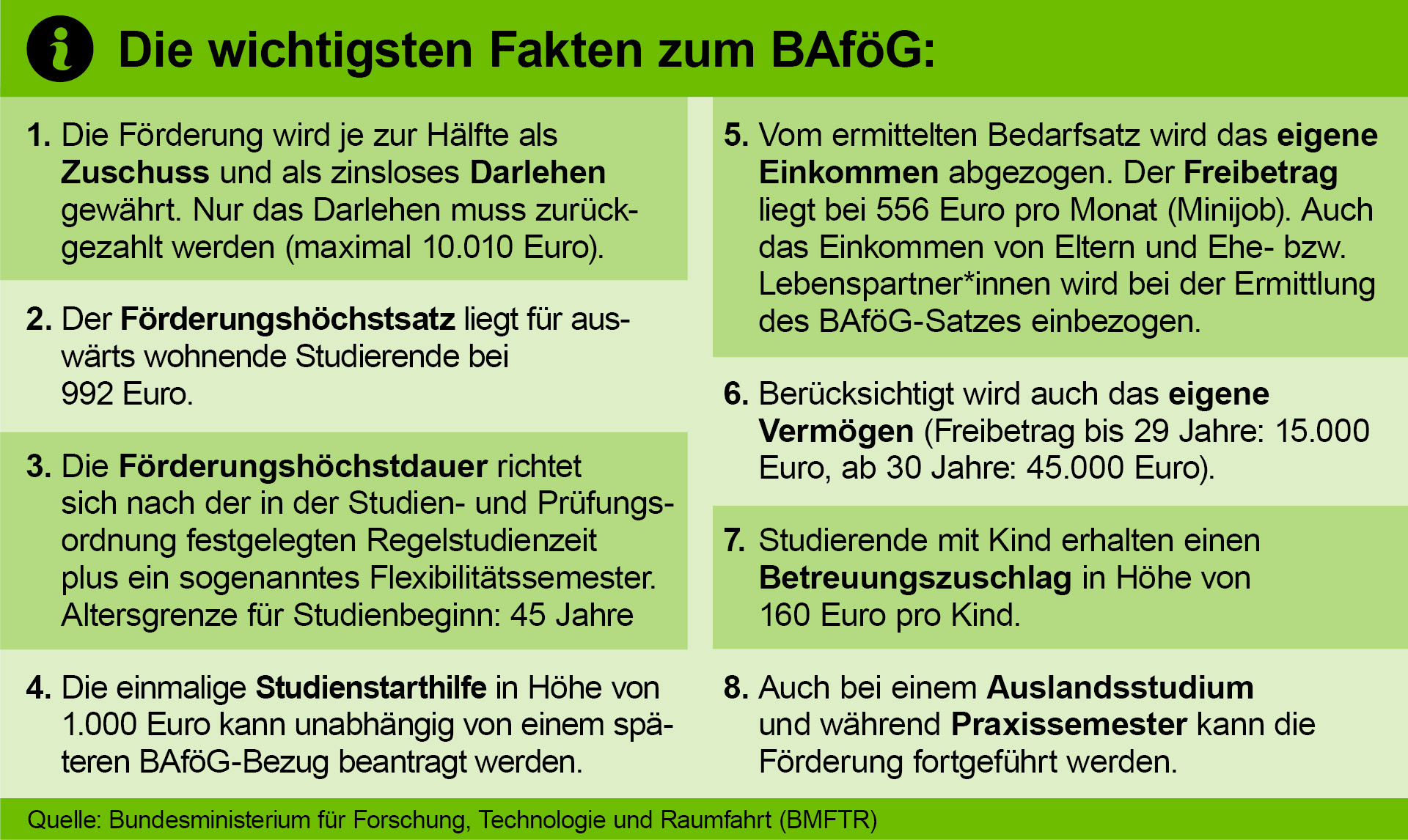Training assistance is granted on application from the beginning of the month in which you actually start your training or studies, but at the earliest from the beginning of the month of application. It therefore makes sense to submit the application early, i.e. six to eight weeks before the start of your studies.
The funding ends when you pass the final examination or, if no final examination is planned, at the end of the training period, when you discontinue your training or when you reach the maximum funding period.
The maximum funding period is based on the standard period of study specified in the relevant state higher education act and/or in the relevant study and examination regulations. The programme is deemed to have been completed in the month in which the overall result of your successfully completed higher education course is announced. The funding ends no later than two months after the month in which the last examination was taken. However, it is possible to take advantage of a one-off flexible semester beyond the maximum funding period. This allows students to concentrate fully on their final thesis, for example, if they slightly exceed the standard period of study.
If knowledge of languages other than German, English, French or Latin must be acquired, the maximum funding period is extended by one semester for each language acquired while attending university.
In the event of delays due to a disability, pregnancy, care and upbringing of a child up to the age of fourteen or the care of a close relative in need of care with at least care level 3, the funding period can be extended for a reasonable period of time (§15 BAföG, para. 3). However, participation in statutory committees and statutory bodies of the university, failure to pass the final examination for the first time and other serious reasons can also extend the funding period. A separate application is required in each case.
Students who were unable to complete their studies within the maximum BAföG funding period can apply for graduation assistance under certain conditions. This is an interest-free government loan (full loan) for a maximum of twelve months, which must be repaid in full. The prerequisite for this is that you have been admitted to the final examination within four semesters of the end of the maximum funding period or, in the case of degree programmes without a final examination, that you have obtained the final qualification. The examination centre or training institution must certify that the course can be completed within the maximum duration of the financial aid.

![[Translate to English:] Ein Taschenrechner hilft beim Ausrechnen des BAföG-Anspruchs.](/fileadmin/_processed_/a/0/csm_bafoeg_106e71de51.jpg)
